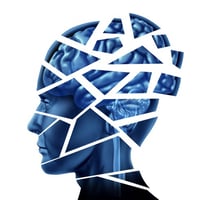Treating patients experiencing cognitive impairments following a traumatic brain injury (TBI) with...
Computer Test May Identify Cognitive Impairment Symptoms Following TBI That Other Tests Miss
 |
A total of 255 people aged 14 to 62 attending a TBI clinic were administered the Montreal Cognitive Assessment (MoCA), a brief screening instrument commonly used by clinicians in TBI settings, as well as three computerized tests, which measured executive function, speed of information processing, and working memory (Stroop Test, the Symbol Digit Modalities Test [SDMT], and a visual version of the Paced Auditory Serial Addition Test 2-second trials [PVSAT-2]). Cognitive testing took 20 minutes, with 10 minutes for MoCA and 10 for the computerized battery, and was performed by a research assistant.
When factoring in age and education level, four patients failed the MoCA test; however, in those with a normal MoCA, 29.5% failed the Stroop, 37.5% the SDMT, and 24.3% the PVSAT-2. Overall, 54.98% failed at least one of the three computer tests.
Study participants were also given two psychosocial questionnaires—the 28-item General Health Questionnaire (GHQ) and the Rivermead Head Injury Follow-Up Questionnaire (RHIFUQ). The patients who failed the computer tests showed higher rates of psychological distress and anxiety.
“While our computerized screening approach should not be misconstrued as a replacement for detailed cognitive inquiry, it is more sensitive than the MoCA in detecting cognitive compromise and provides clinically useful, rapid results in the absence of a neuropsychological service,” the study authors concluded.
For related information, see the Psychiatric News article “Blood Test May Detect Concussions Days Later” and the Psychiatric Services article “Development and Validation of a Computerized-Adaptive Test for PTSD (P-CAT).”
(Image: iStock/sturti)





